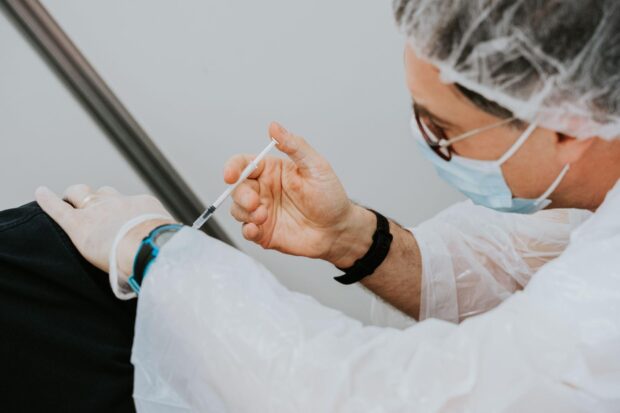W.I.S.E webinar bolsters awareness of common elderly issues
Alongside aging comes the rising need for stronger and more proactive healthcare protection. Aging presents a number of risks to various diseases like pneumonia, hypertension, cardiovascular disease, and arthritis. Given that the COVID-19 pandemic further increases risks as it slows down one’s immune system, advocating and supporting geriatric health is increasingly critical.
According to a report by the Philippine Statistics Authority (PSA), 5.4 percent or 5.86 million Filipinos aged 65 and over comprised the household population nationwide in 2020, an increase from 4.8 percent in 2015. The figure is still expected to maintain an upward trend by 2030. Moreover, the United Nations Development Program reported that the average life expectancy in the country improved to 71.2 years old in 2019, a massive 69-year rise from 54.9 years old in 1950.
On its way to a wider population of older adults, access to basic healthcare and provisions is still scarce for the elderly. For this reason, the Philippines need to open broader and deeper conversations on geriatric health in a way that will support the elderly and enlighten their families on the issues they face to help them identify and combat health risks that may arise.
The Well-being Initiatives and Support for the Elderly (WISE) is a flagship campaign by the University of the Philippines (UP) College of Medicine’s Mu Sigma Phi Medical Sorority, Asia’s first recognized medical sorority. The program empowers the elderly to take more active control of their health while fostering more geriatric-friendly communities across the country.
In partnership with MSD in the Philippines, the UP Mu Sigma Phi, through the advocacy program, created the WISE animated webinar series entitled “WISE Sine GaMUtan”. The series aims to tackle the older population’s common issues that are not discussed as often as they should be. It also advocates for the geriatric population by boosting awareness of the issues faced by people 60 years old and above and inviting them to ask questions to health experts.
The WISE Sine GaMUtan series is published across several platforms to generate a wider reach while encouraging active interaction between the viewers and geriatric health experts.
Elderly immunization against pneumonia
Amid ongoing discussions on geriatric health concerns, medical experts likewise underscore the need for protection against pneumonia for the elderly. Older adults aged 65 and above are exposed to higher risks of acquiring pneumococcal disease or pneumonia, which may be fatal to the age group due to their immune system or other pre-existing conditions. Nevertheless, healthy older adults may still be vulnerable to pneumonia. In fact, the Department of Health recommends pneumococcal vaccination for adults aged 50 years or older.
In the WISE webinar, Dr. Nina G. Gloriani highlighted how pneumonia affects the elderly, she said, “The elderly and people with chronic medical conditions have a higher possibility to contract severe diseases or other complications when infected by the flu virus. They are also at higher risk to acquire severe or fatal cases of pneumococcal disease.”
Pneumonia is a lung infection most commonly caused by bacteria called Streptococcus pneumonia usually contracted through airborne droplets. The bacteria target the air sacs of the lungs, filling them with fluid or pus, thus causing fever, chills, cough with phlegm, and difficulty breathing. There are also other types of infections that are caused by pneumococcus bacteria such as meningitis, an infection on the linings of the brain. People of all ages are at risk of acquiring pneumonia, but the most common age groups are infants, young children especially those under the age of 5, and the elderly.
In 2021, the Philippine Statistics Authority recorded 32,477 cases (4.2 percent share) of death due to pneumonia, making it the seventh leading cause of death for the year.
Prevention is better than cure, and one way to help protect the elderly from grave diseases is immunization through vaccination. The government has established policies that enable them to protect themselves from pneumococcal disease, which everyone eligible is encouraged to avail of. Through RA 9994 or the “Expanded Senior Citizens Act of 2010”, indigent adults aged 60 and older are entitled to free vaccinations for pneumonia and influenza.
Dr. Gloriani mentioned how vital the pneumococcal vaccines are and said, “The recommendation is that all adults aged 60 and above should be inoculated with flu and pneumococcal vaccines to help protect them from severe infections and it doesn’t become fatal to them. Diseases like flu, pneumonia, and COVID-19 are preventable, especially their severe forms.”
ADVT
